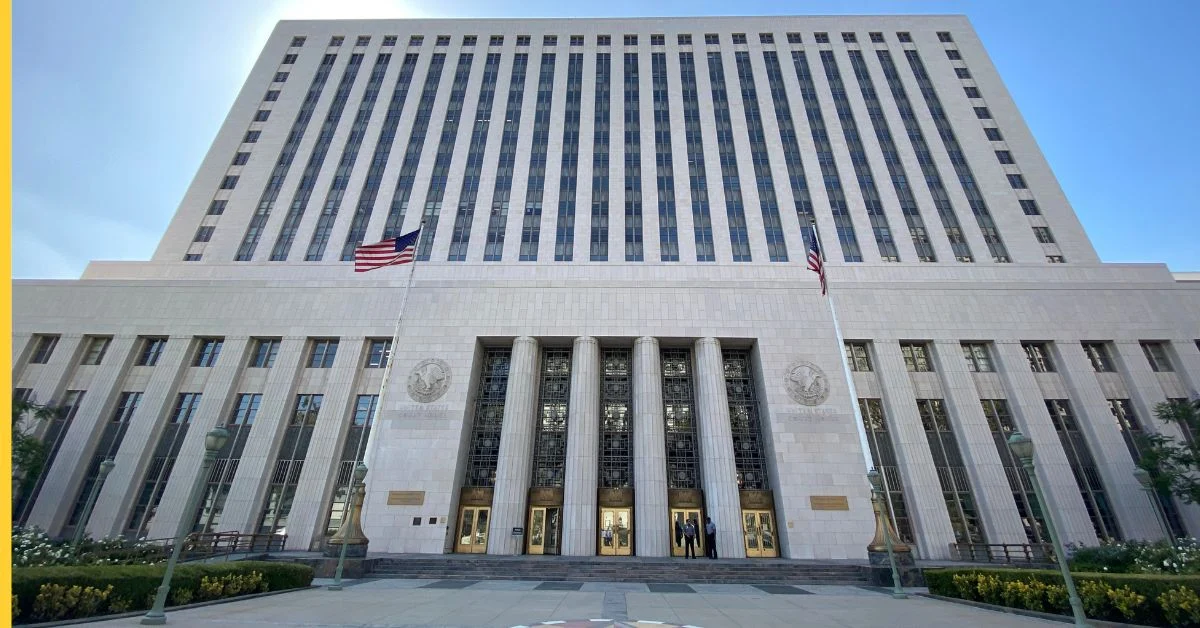
A federal judge has declined to rule on whether sweepstakes casino Stake.us operates illegally and instead ordered the case to arbitration — marking a key procedural victory for the site’s parent company, Sweepsteaks Ltd.
In a ruling issued late last week, the US District Court for the Central District of California granted Sweepsteaks’ motion to compel arbitration, effectively pausing the case while a private arbitrator determines the outcome.
The case was brought by California resident Dennis Boyle, who filed a complaint earlier this year alleging that Stake.us is illegally operating an online gambling site in violation of state laws.
Boyle claims the company’s sweepstakes system — based on the use of “Gold Coins” and “Stake Cash” — functions as real-money gambling, despite being marketed as a promotional sweepstakes platform.
Boyle, who identifies as someone struggling with gambling addiction, alleges the site targets Californians and uses deceptive algorithms that are “not truly random.”
His legal team also invoked California’s Unfair Competition Law, arguing the platform lacks appropriate registration or licensing, and seeking injunctive relief to halt its operations in the state.
Stake.us, the US-facing brand of global crypto gambling firm Stake.com, has maintained that its sweepstakes model complies with legal standards, noting that no purchase is necessary to play and win on the site.
The lawsuit was initially filed in Orange County Superior Court but was later moved to federal court, where Boyle attempted — unsuccessfully — to have it remanded back to state jurisdiction.
In its motion, Stake.us argued that Boyle had agreed to arbitrate all disputes when he created an account and clicked to accept the site’s terms and conditions, which included a broad arbitration clause.
The agreement also offered users an opt-out provision, which Boyle did not exercise.
The court stated that the arbitration clause “clearly and unmistakably” delegates the question of arbitrability to the arbitrator, not the court.
Boyle had challenged the enforceability of the arbitration clause, asserting it was unconscionable and formed part of an allegedly illegal contract.
However, the court found no evidence of procedural unconscionability, especially given the presence of an opt-out option and the lack of coercion or unfair surprise.
“The Court can only conclude that there is no procedural unconscionability as Boyle has failed to meet his burden,” the judge ruled.
“Therefore, the Court finds that Boyle must arbitrate his claims with Sweepsteaks.”
The case is now stayed pending the outcome of binding arbitration.
Following the decision, the Social and Promotional Games Association (SPGA), a trade group representing sweepstakes and social gaming platforms, praised the ruling.
“This ruling affirms what we’ve long said: Social sweepstakes sites are not gambling,” a SPGA spokesperson said in a statement.
“They are free-to-play games enjoyed responsibly by millions of American adults, and no purchase is ever necessary to play or have a chance to win prizes.”
“Anyone can file a lawsuit making any claims they like,” the statement continued. “This ruling is a reminder that facts — and the law — still matter.”
Although Boyle’s claims will now proceed to private arbitration, the ruling could set a precedent for similar lawsuits filed against sweepstakes platforms across the US.